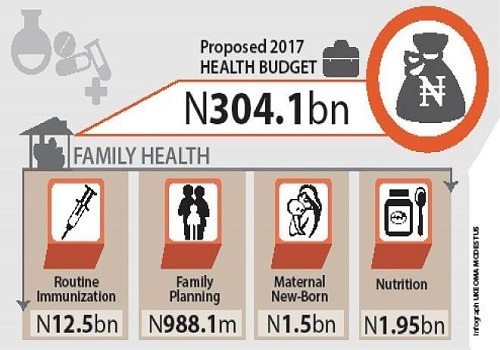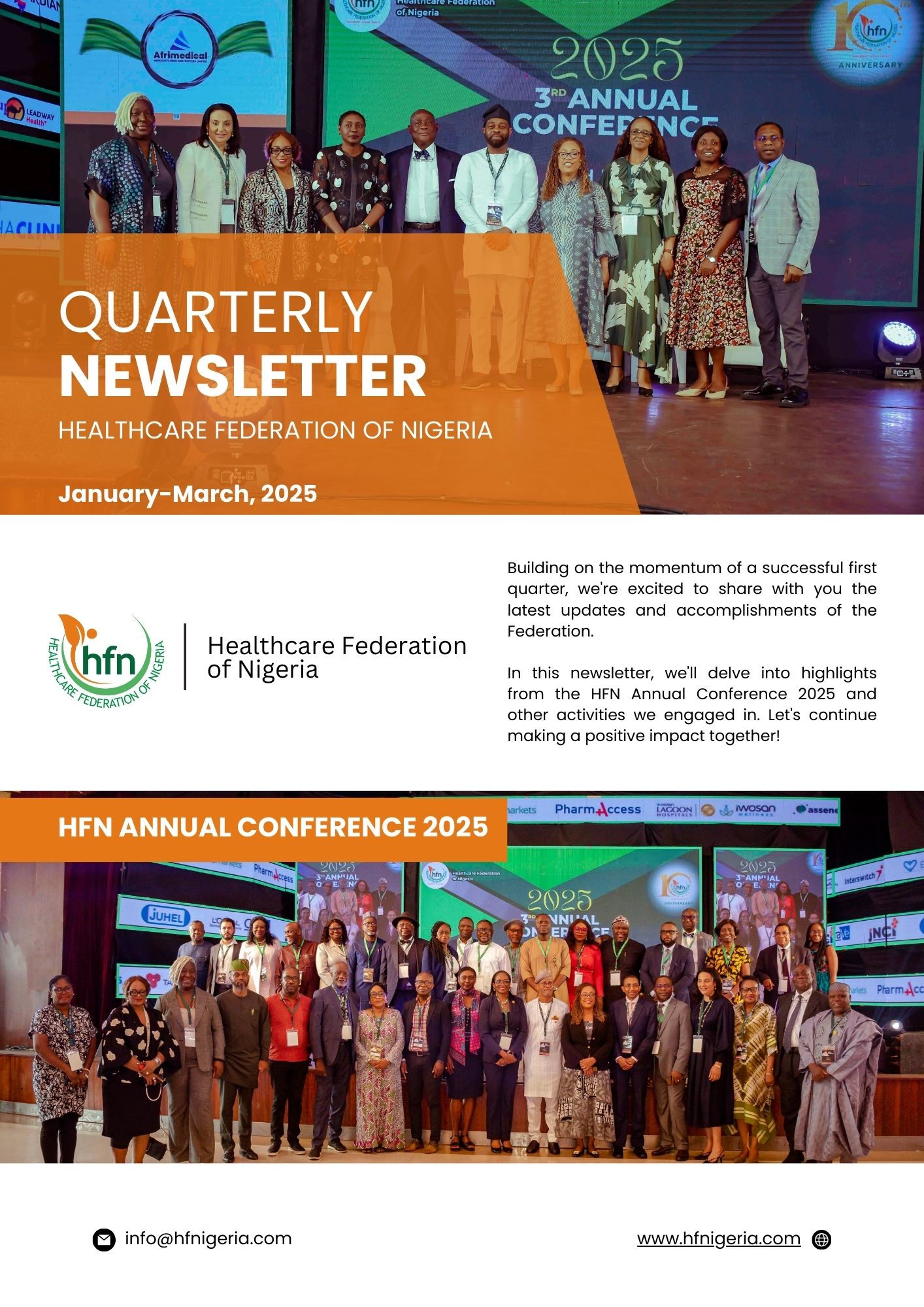 Yesterday the National Assembly commenced a public hearing on the proposed 2017 budget submitted to the legislature by President Muhammadu Buhar. It is important for the House to increase the proposed 2017 health budget especially in the areas of family health.
Yesterday the National Assembly commenced a public hearing on the proposed 2017 budget submitted to the legislature by President Muhammadu Buhar. It is important for the House to increase the proposed 2017 health budget especially in the areas of family health. Nigeria still has high maternal mortality rate and under five deaths. Increasing funding for child and family health services at national and state levels will not only improve maternal and child health but also the national health outcomes.
The key areas of family health that should be revsited and increased include nutrition, routine immunisation, family planning and maternal newborn and child health. The response to the health needs of under fives and women of reproductive age group by a country’s health system goes a long way to show not just only its strenght and responsivess but also its health ooutcomes.
2017 proposed health budget
Last week the Chairman of the Senate Committee on Health, Senator Lanre Tejuosho said the National Assembly will increase the budgetary allocation to health in the proposed 2017 national budget to 15 percent in line with the 2001 African Union Abuja declaration.
While Nigerians cheered at the news, they also hope that the National Assembly will live up to that promise because the poor budgetary allocation to the health sector has continued to be a bane to quality healthcare service delivery in the country with its attendant very poor health indices.
There is urgent need to up the ante and change the status quo of health financing at all levels of governance if the country must do away with the many preventable deaths especially of women and children, as well as address the persistent medical tourism that trickles right from the doorstep of the leadership down to the citizens who can afford it.
The allocation of N304billion, representing 4.17% of the total budget to health, a negligible improvement on the 2016 approved health budget of 4.13% is not only grossly inadequate but falls short of 15% Abuja Declaration.
According to Kyauta B. Tanyigna of the Directorate of Research , National Institute of Policy and Strategic Studies, Kuru Nigeria has failed in its leadership role in Africa by refusing to set aside the 15% allocation of its budget to the health sector since 2001.
He said: “This has become more worrisome considering that the agreement was reached at a forum of African Heads of States hosted by Nigeria. It has also become shameful when taken into consideration that up to 33% of the African countries in attendance have allocated 10% of their budgets, many others have kept to the agreement.”
Programme Director (Strategy) of the Pharmaceutical Society of Nigeria, Pharmacist Remi Adeseun also drew attention to the fact that with the current exchange rate of Naira in relation to the United States Dollar, the 2017 health budget is even less than that of 2016.
Nutrition
Beatrice Eluaka , President Association of Women Nutritionist of Nigeria said the 2017 Nutrition Budget should be increased because Nigeria has the highest number of stunted children in the continent, and ranks second globally with about 11 million stunted children, among other reasons.
She said the National Demographic Health (2013), showed that 37 percent of children under five are chronically malnourished (stunted), 18 percent of children under five suffer from acute malnutrition (wasted) and 29 percent of children under five are underweight.
It also showed that 17 percent of children less than six months are exclusively breastfed and complementary foods are not introduced in a timely fashion for all children as only 67 percent of breastfed children aged 6-23 months receive complementary foods. Overall, only 10 percent of children aged 6-23 months are fed appropriately based on recommended infant and young child feeding practices.
She said the National Strategic Plan of Action for Nutrition (NSPAN) is the Health Sector Component of the National Policy on Food and Nutrition and has a five -year life span (2014 – 2019). The goal is to improve the nutritional status of Nigerians throughout the lifecycle, with a particular focus on vulnerable groups including women of reproductive age and children under five years of age.
Eluaka, who is also the Project Director of the Civil Society Scaling Up Nutrition in Nigeria, CS-SUNN, said in the 2017 Proposed Health Budget Analysis done by the Partnership for Advocacy in Child and Family Health (PACFaH) project, while the Federal Ministry of Health has a budget of N304,190,961,402 and other health allocations have N77, 366,371,678, it is unclear what was budgeted for nutrition in the health budget.
“This is worrisome because nutrition has a dedicated budget line in the ministry and the implementation of the NSPAN is within the purview of that ministry. A budget of about N93,000,000 was proposed for the implementation of the NSPAN for 2017 but this was not reflected in the budget or is subsumed in the Federal Ministry of Health total budget.
“This kind of basket funding tends to short change programmes which the ministry may not consider as a priority. The problem of malnutrition is too serious not to be a line item in the health budget,” she said.
The nutrition expert said it was note worthy that in 2015, N30million was budgeted for nutrition in the health budget and only N15million was released. In 2016, N2million was approved.
According to her, while a total of N1,951,659,141 was allocated to nutrition in the ministries of Agriculture, Education, Science and Technology, research Institutes (Zaria, Maiduguri and Zaria) and FGGC, the bulk of N1,871,741,841 goes to Agriculture.
She said: “It is important to note that food security does not necessarily translate Nutrition Security as the food can be available but beyond the reach of the vulnerable groups. Also food can be available but ignorance or lack of knowledge of what constitutes an adequate diet prevents efficient use of the available foods. An increase in the health budget for nutrition is therefore a necessity if the targets of the NSPAN is to be achieved.”
On nutrition funding for acute and chronic malnutrition in the budget, Nigeria Country Representative of One Campaign, Edwin Ikhuoria, said the total provision for nutrition amounts to 1.23bn with counterpart funds to UNICEF for Ready-to-Use Therapeutic Foods (RUTF) of 1.2bn constituting the most significant of these.
He said, “We are of the opinion that whilst the bulk of financing from donors for nutrition is currently being channeled into the treatment of severe acute malnutrition, with relatively low levels of financing directed to the preventive measures it behoves on the government of Nigeria to prioritize the funding of initiatives to prevent new cases of stunting in Nigeria.”
Family planning
Chinwe Onumonu, Programme Director of the Association for the Advancement of Family Planning , said the N988.12m proposed for family planning in the 2017 budget was not in line with the expected provision of $11.5 million commitment by the federal government in the London Family Planning 2012 Summit to respond to family planning gaps in the country.
She said there was need to increase the budget for family planning to reduce maternal and infant mortality.
Routine immunization
Analysing the budgets on immunization, Dr Aminu Magashi Garba, Coordinator Africa Health Budget Network said about N12.5 billion was proposed for immunization in the 2017 national budget which is fairly the same as that of 2016 which was about N12.8b. “The funding for the eradication of polio as a sub-component of the immunization proposed budget is N4.9 billion which compared to 2016 budget is about 49% of the N9.6 billion provided for polio in 2016,” he said.
He said that Nigeria needs to commit adequate funding for polio in 2017 to match what the international community was providing because of the outbreak in the northeast in 2016.
According to him, this year, there are planned immunization schedules and surveillance for polio with a total budget of about N75 billion, with N50 billion already committed or pledged by international donors. Nigeria is expected to commit adequate funding of about N25 billion. And in this proposed budget the polio funding committed is only N4.9 billion.
“This is far and grossly inadequate and most importunately the donor commitment of N50billion is dependent on how much Nigerian government commits in its 2017 budget. A passionate appeal is make to President Buhari and the National Assembly to do what is needful to eradicate polio from Nigeria,” said Dr Aminu Magashi Garba.
Source:MWN







